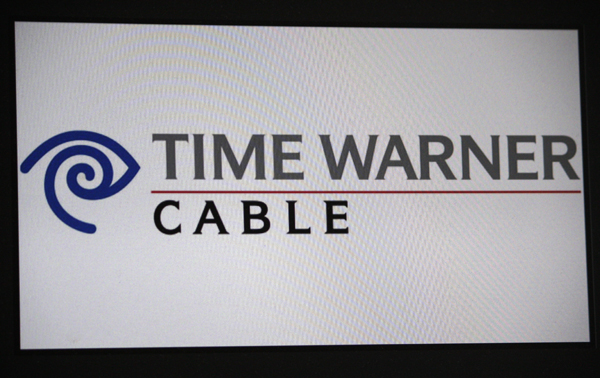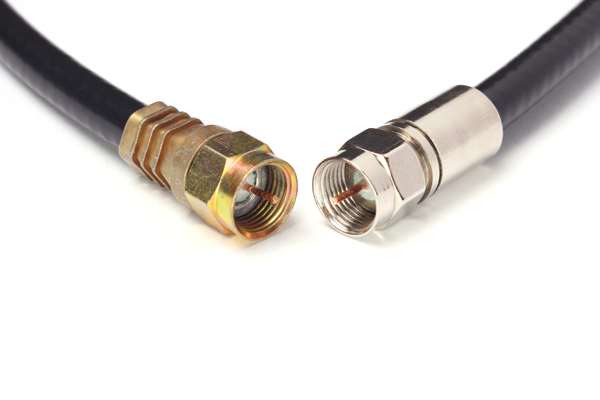Time Warner ISP Review & Reader Survey Results
Tom’s Hardware's ISP round-up puts the power in the hands of our readers, who gave us their opinion of the nation's top Internet service providers. And now it's time to take a closer look at Time Warner Cable.
Introduction
A few months ago, we launched a survey that asked our community to rate their internet service provider (ISP). Over 3100 readers from all over the country participated, and we picked the top four most-voted ISPs to focus on.
Our readers rated each ISP in terms of price, performance, reliability and support on a scale of one to five stars, with one being the worst possible score and five being the best. We averaged each category's total score, and rounded each result to the nearest one-quarter star. We also provided the mathematical average, so we can compare scores later (it's starting to look like we'll have a close race at the finish line).
The next ISP in our series is the second-largest cable Internet provider in the country, and therefore it's not a surprise the company also garnered the second-highest amount of feedback in our survey, with 372 participants giving their honest opinion of its services.
History
Time Warner Cable's roots can be traced back as far as 1968, when American Television and Communications (ATC) was founded. Five years later, newcomer Time Inc. acquired nine percent of the controlling stake of ATC. In 1973, Warner Communications formed Warner Cable. By 1978, Time Inc. had gained 100 percent control of ATC; Warner Cable and Time Inc. announced the merging of their respectively powerful companies in 1989. In 1992, Time Warner Cable was officially christened with the launch of NY1 News in New York City, operating under the Time Inc. umbrella.
In 1996, Time Warner Cable debuted its “Roadrunner” cable Internet service, becoming one of the first communications and cable television providers to offer high-speed connectivity. When cable television mainstay Adelphia was sold, Time Warner Cable gained additional systems and coverage in the northeast, further cementing its place on the ISP totem pole.
At that point, Time Warner Cable was still part of the massive Time Warner Inc. machine. However, after the company became a public entity in 2007, Time Warner Cable separated from its parent company in 2009 and began acquiring regional communications companies to become an even more dominant force in the cable television and high-speed Internet market. Those acquisitions included NewWave Communications in 2011, Insight Communications in 2012 and DukeNet Communications in 2013.
Today, Time Warner Cable boasts a total customer base of over 15.5 million people, with over 12.2 million high-speed data subscribers. In addition, the company employs over 50,000 people and services 29 different states across the nation.
Get Tom's Hardware's best news and in-depth reviews, straight to your inbox.
Technology
Time Warner Cable offers its high-speed Internet services across coaxial broadband cable lines. These networks can span great distances, with no bandwidth degradation as your distance from the main hub increases. However, cable Internet is prone to sagging bandwidth during peak hours, since customers share throughput on a hub.
Cable Internet speeds are comparable to DSL, though cable can hit higher maximum bandwidth. Here’s a chart of Time Warner Cable’s service plans, speeds, price and available service regions:
| Speeds (In Mb/s) | Prices (Per Month, Non Promotional) | Primary Service Regions | Technology |
|---|---|---|---|
| 3, 10, 50, 100, 200, 300 | $15, $30, $35, $45, $55, $65 | AL, AZ, CA, CO, HA, ID, IL, IN, KS, KY, ME, MA, MI, MS, NE, NH, NJ, NM, NY, NC, OH, PA, SC, TN, TX, VA, WA, WV, WI | Coaxial Cable Internet |
Derek Forrest was a contributing freelance writer for Tom's Hardware. He covered hardware news and reviews, focusing on gaming desktops and laptops.
-
utroz Yeah well all know how Time Warner is.. They have faulty lines that they refuse to fix in my area causing both internet and cable tv to have outages at least 1-2 times a day for 5 min or so.. Really annoying when watching netflix and stuff.. One good thing is no data caps for me which is good as we pull around 20TB a month download ( not even close to what I could if I was pulling data 24/7 at max bandwidth). All it takes is a few people watching neflix, hulu, youtube, downloading updates, online gaming,ect.. Comcast's 300GB limit is a total joke.. I could pee 300GB of data.. ;)Reply -
holyneo I love my TWC service, I get like insane speeds (60-75Mbps down, 6Mbps up). My service never goes down, I could complain about the price, but my complaint is more for the TV service price. Nobody comes close to those speeds in my area. I can stream 4k content with no problems as well.Reply -
LookItsRain I understand that prices differ between cities and states, but TWC wants 65 dollars for 50/5, 45 dollars for 20/2 and 15 for 2/1. Prices are much higher than what is listed here, and 50/5 is the fastest you can get in my area. Not to mention the price jumps after the 12 month promotion, or the complete lack of competition that allows them to do this.Reply
Not to mention it goes out every month, and even has more issues with its DNS(thanks google 8.8.8.8.8). -
thburninator Seeing these rates makes me sad. The "Extreme" is the highest option offered in my area, and that costs about $75 a month. I pay $60 for 30 down/ 5 up. Then again, that is basically my only high-speed option in my area, so it's not like I have much choice anyways.Reply -
dangus Those prices are just straight up not what TWC offers in my area. My bill is almost $65/month and i get 25 down/5 up......Reply -
InvalidError Should have checked prices in more than one city and state. I doubt TWC would have scored 2.25 on pricing if everyone could get 50Mbps for $35/month regular (non-promo) rate.Reply -
ChuckLezPC What area in Texas did you test? I currently pay $60 (non-promo rate for NE Ohio) for 15/1 (would have to pay $80 to get 30/5). I would shank someone to get 50/5 for $35.Reply
Maybe consider taking multiple cities (and/or states without google fiber), and average them.
Also, you did not need to enter an address to get their rates: http://www.timewarnercable.com/en/support/account-and-billing/topics/retail-rates.html -
QuangT TWC is decent if you live in a highly populated area, they get things done fast since there are other companies like Verizon, Optimum, etc. here in NYC. When I lived in a house, the performance was terrible which huge packet loss 24/7 for over 3 years. After moving to my apartment, the only bad performance was just internet loss for about a couple of hours. This happened twice for the past 2 years, otherwise constant 50/5 with <1% packet loss at all time.Reply -
Gurg My experience: When paying for 30mbps got around 36, now paying for extreme 50mbps and getting 62. Dropped Directv and went with bundle with TV and phone (new add on for us) and am now paying over $100 less than with TWC and DTV separately.Reply
Initially when using TWC rented combined router/modem unit my service was terrible and spotty. Bought my own sb6141 modem and ASUS router and everything is working great throughout the home.
If you are unhappy with TWC service and performance and using their rental modem/router that could be the cause of the problem. -
EnigmaX Yeah, I created an account just to chime in on how far the pricing in the article is off in my area (Upstate NY). I pay $58/mo for the privilege of 15/1 service. And for that, I can thank an absence of competition.Reply
Calling into tech support for various sustained drops in speed (as low as 0.05 mb/s for hours at a time, a couple times each month), has resulted in them simply pointing fingers at my hardware (purchased cable modem, router, cables). Techs have been sent, and they just test my lines, scratch their heads, and leave.
The upside is that I now have a perfectly functioning backup for each component. The downside is they still haven't fixed THEIR issue. But, then again, what's their incentive?
The obvious solution is for government to get out of bed with the ISP's and allow competition. Only then will pricing, speed, and reliability see noticeable improvement. (But, money...)


